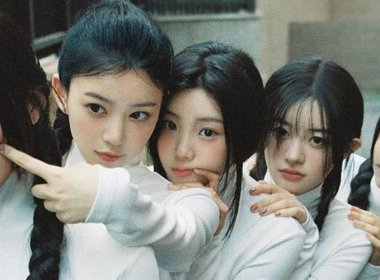It’s a weird, awful phenomenon when an artist dies.
There’s the initial news reports, the disbelief, the outcry and sorrow from fans, the pandering by non-fans crawling out from the woodwork, the detractors, the well-intentioned wise words, the mean-spirited off-color jokes and everything else in between.
But with Amy Winehouse, it was different–for me at least–because there was a personal connection underneath it all. And while I don’t mean to discredit or devalue the loss of any pop culture figure, Amy was an invaluable part of my life–someone to whom I could readily point to as responsible for shaping my taste in music today.
Though I never actually wrote about her much (in part because MuuMuse was founded right after her peak of fame, post-Back to Black‘s release in 2007), I’d always counted Winehouse amongst one of my all-time favorite acts.
My first encounter with Amy was back around November or December of 2006, when I’d haphazardly stumbled upon her album while prowling the PopJustice Forums during one of my many nightly pursuits for new music.
As a boy with a serious weakness for a girl with even the slightest darkness floating within her aura, I became obsessed with this visibly troubled, stubbornly defiant Jewish girl from Londontown with the brassy, soulful set of pipes recalling that of Lauryn Hill and Etta James, enshrouded by an endless torrent of media scrutiny for her weight, her looks, and most of all, her rampant drug and alcohol abuse.
I fell in love with Back in Black almost immediately. Each big band melody and catchy doo-wop hook largely co-crafted by Winehouse, Salaam Remi and Mark Ronson stayed with me after the very first play. My favorite songs, including title track “Back to Black,” found me singing about situations I’d never experienced before and subjects I had no business singing about (“You love blow and I love puff”? I wouldn’t even try smoking my first cigarette until three years later), but the earnest, soul-bearing emotion with which Amy sung those words was as relatable for me as anything I’d ever heard before, and so I continued to sing right along.
I listened incessantly. I have the most distinct memory of carefully wiring my iPod’s ear-buds through my sweater, then through my scarf and tucking it around my ears so that I could hear Back to Black play from start to finish while bundling up to shovel out my driveway during one particularly snowy day in January. (To no one’s surprise in particular, the shoveling session exhausted itself long before the album finished.)
I shared her with friends and loved ones–burning tracks from both records onto mix-tapes. I remember the extended sing-a-longs with my then boyfriend at the time, driving around for hours while soaking in both Frank and Back to Black on repeat–one of the very few artists that both I, the pop lover and he, the punk kid–could mutually agree upon.
Sometime shortly thereafter, American audiences soon grew attuned to Amy’s sophomore record, perhaps largely ushered in by her iconic appearance and buzzworthy street antics (which happened at the same time as the US paparazzi’s bloodlust for socialites behaving badly from the likes of Paris, Lindsay and Britney began to peak.)
And, of course, there was her breakout US hit: “Rehab.” With just the one record, Winehouse effectively ushered in a full-on ’60’s neo soul revivalism in modern pop across the globe, paving the way for brilliant, equally talented singers like Duffy and Adele to debut via similar throwback sounds.
During the summer of ’07, I was working at a local Barnes & Noble in–where else?–the music department, where I spent a majority of my time idling my time behind a small shelf of assorted music magazines. And then one week in mid-June, there she was, then 23-years-old, posing on the cover of Rolling Stone: The Ronettes-inspired beehive and Cleopatra cat-eye; the sleeve of old-school-styled tattoos with crudely drawn pin-up girls and hearts splashed up and down her arms on full display.
“The Diva & Her Demons,” the article was titled. To this day, the accompanying photograph from the article of Winehouse, seemingly lost in her own thoughts and somewhat seductively tucking her hand into her pants, still hangs on my wall, having been carefully carried from every dorm room I inhabited while away in college.
But as time went on, Amy’s days only grew darker. We watched her stumble out of the public eye–on some days quite literally hitting rock bottom–only to dive even further down in the following week. Of course, there were the brief periods of hope interspersed between the train-wreck moments–reports of new music, iffy-to-solid live performances here and there, and even signs that might be reaching out for help–but ultimately, there was only further darkness.
Amy’s death on Saturday afternoon is simultaneously the most shocking and unsurprising news I’ve heard all year. As her condition deteriorated to a shocking degree in the public eye (as witnessed in her painfully sloppy performance in Belgrade only weeks ago, which ultimately led to the cancellation of all future tour dates this year), her demise seemed–however morbid it is to say–obvious. At some point long ago, she simply became too far gone.
Back To Black was already a classic before Saturday afternoon. Today, it is forever sealed in music lore as Amy’s tragic masterpiece–a stunning body of soulful crooning and unnervingly true-to-life lyricism; a shining emblem of wasted potential.
Amy truly lived and breathed every painful word and broken melody of each song she ever recorded. There’s been no other artist in recent memory whose work remained so staggeringly, inextricably tied to their own personal life. She was a girl who wore her heart on her sleeve–quite literally–torn apart by fame, heartbreak, and most of all, by addiction.
You have been loved and you will be missed dearly, Amy. Thank you.




